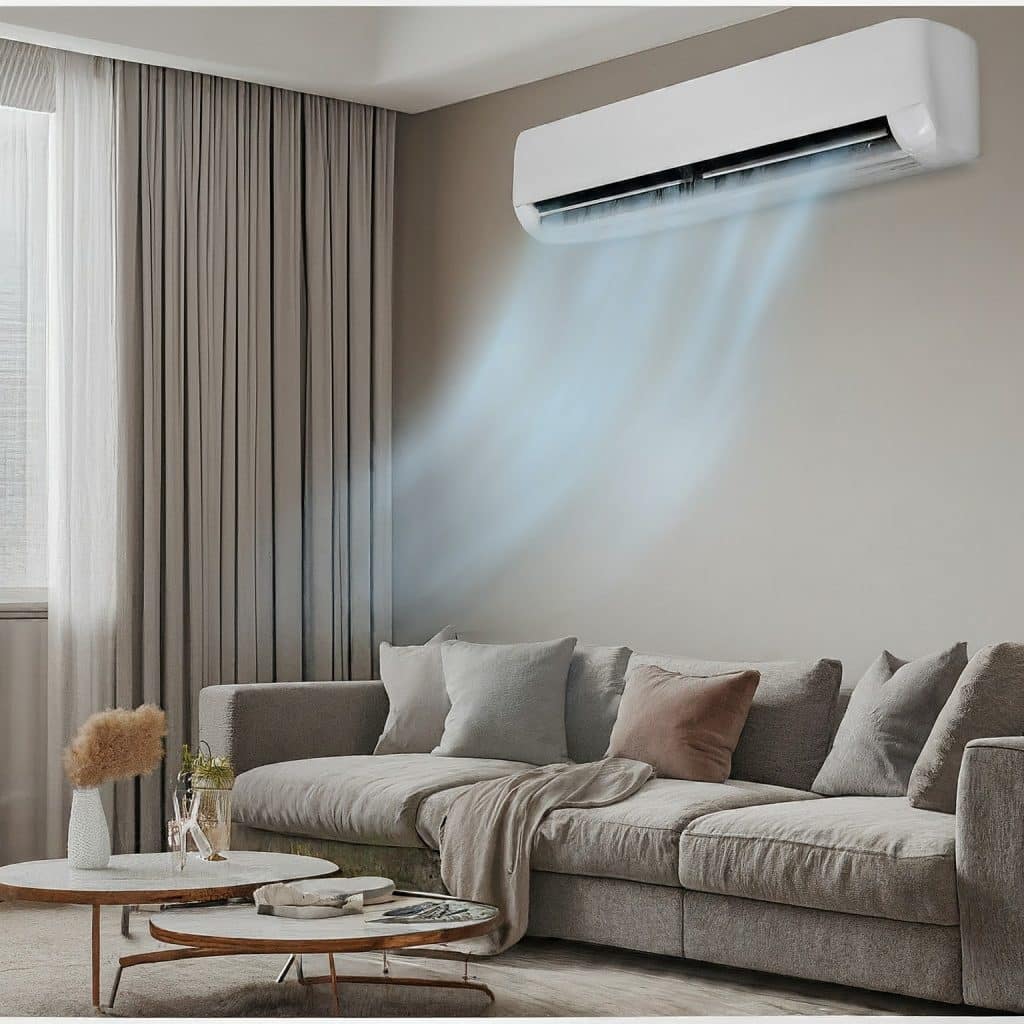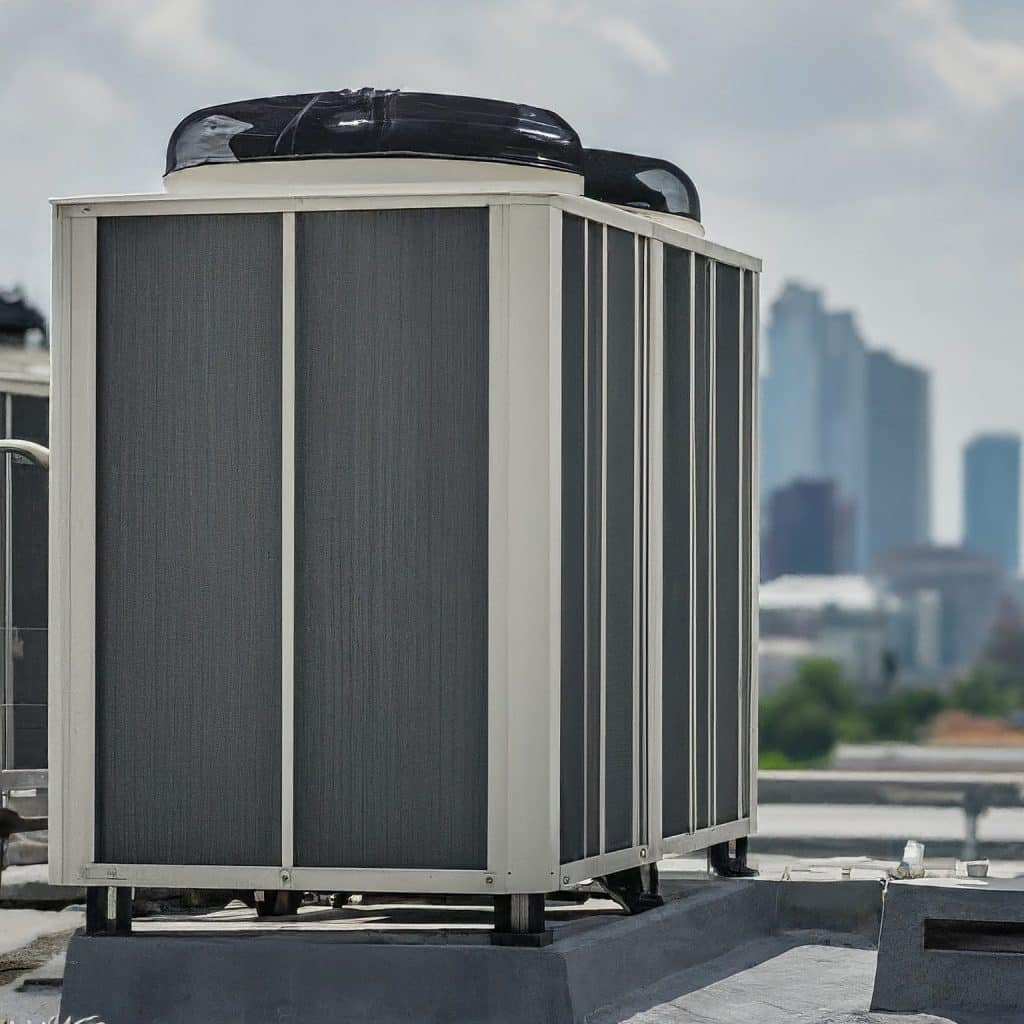Living in a coastal area like Wilmington, NC offers many benefits, from the beautiful beaches to the laid-back lifestyle. However, the unique climate conditions in these regions can take a toll on your home’s HVAC system. As a leading HVAC contractor with over 10 years of expertise, Revolutionary Air has firsthand experience dealing with the common HVAC problems that arise in coastal environments. In this comprehensive blog post, we’ll explore these issues in-depth and provide practical tips for keeping your system running smoothly year-round.
Understanding the Impact of Coastal Conditions on HVAC Systems
The coastal climate presents a unique set of challenges for HVAC systems due to the combination of salty air, high humidity levels, and frequent temperature fluctuations. Let’s take a closer look at how each of these factors can affect your unit’s performance and longevity.
Salt Air Corrosion
One of the most significant issues facing coastal HVAC systems is the corrosive nature of salt air. The salty atmosphere accelerates the corrosion of metal components, leading to premature wear and tear. Over time, this corrosion can cause a range of problems, from decreased efficiency to complete system breakdowns.
Signs of salt air corrosion include:
- Visible rust or deterioration on the unit’s exterior
- Reduced cooling capacity or airflow
- Increased energy bills as the system becomes less efficient
To combat the effects of salt air corrosion, it’s essential to schedule regular maintenance with a qualified HVAC contractor. During these visits, technicians will clean and inspect the unit, applying protective coatings to vulnerable components and replacing parts as needed.
High Humidity Levels
Another major challenge in coastal areas is the high humidity levels. Excess moisture in the air can wreak havoc on your HVAC system, leading to a host of problems, such as:
- Mold and mildew growth within the unit and ductwork
- Reduced cooling efficiency as the system struggles to remove humidity
- Increased strain on the compressor and other components
To minimize the impact of high humidity, it’s crucial to keep your HVAC system well-maintained and properly sized for your home. An oversized unit will cycle on and off too frequently, failing to effectively dehumidify the air. A professional HVAC contractor can assess your space and recommend the ideal system for your needs.
Wide Temperature Swings
Coastal regions often experience wide temperature swings, with hot, humid summers and cool, damp winters. These frequent shifts in temperature can make it difficult for HVAC units to maintain steady indoor comfort levels, leading to increased wear and tear on the system.
To help your unit cope with these temperature fluctuations, consider:
- Installing a programmable thermostat to optimize settings based on weather conditions and occupancy
- Upgrading to a variable-speed or multi-stage system that can adapt to changing demands
- Investing in regular maintenance to ensure your unit is operating at peak efficiency
By taking a proactive approach to HVAC care in coastal environments, you can extend the lifespan of your system and avoid costly breakdowns.

Addressing Common Coastal HVAC Issues
Now that we’ve explored the unique challenges coastal climates pose for HVAC systems, let’s delve into some of the most common issues homeowners face and how to address them effectively.
1. Corroded Condenser Coils
The condenser coils in your outdoor unit are particularly susceptible to salt air corrosion. As the coils deteriorate, you may notice signs such as:
- Visible rust or deterioration on the coils
- Reduced cooling capacity or warm air blowing from vents
- Higher energy bills as the unit becomes less efficient
To prevent and address condenser coil corrosion, it’s essential to schedule regular coil cleanings and inspections with a professional HVAC contractor. Applying protective coatings can help extend the coils’ lifespan, but in cases of severe corrosion, replacement may be necessary.
2. Electrical Component Failures
The combination of humidity and salt air can also cause corrosion and damage to your HVAC system’s electrical components, including wiring, capacitors, contactors, and motors. Signs of electrical issues may include:
- Complete loss of cooling or heating functions
- Frequent cycling or failure to turn on
- Blown fuses or tripped circuit breakers
To minimize the risk of electrical failures, it’s crucial to keep these components clean, dry, and well-maintained. Annual inspections by a licensed HVAC contractor can help identify and address potential issues before they lead to system breakdowns.
3. Clogged Condensate Drains
As your HVAC system works to remove excess humidity from the air, it produces condensation that drains through a dedicated line. In coastal areas, algae and mold growth can quickly clog these drains, causing:
- Water backups and leaks around the indoor unit
- Mold growth inside the system and your home
- Musty odors emanating from vents
To prevent clogged condensate drains, schedule periodic line cleanings and consider installing an overflow safety switch that will shut off the system if a backup occurs. Ignoring a clogged drain can lead to extensive water damage and costly repairs.
4. Refrigerant Leaks
Coastal HVAC systems are also more prone to developing refrigerant leaks due to the corrosive environment. Signs of low refrigerant levels include:
- Reduced cooling capacity or warm air blowing from vents
- Hissing or bubbling noises coming from the unit
- Frozen evaporator coils
If left unaddressed, refrigerant leaks can allow air and moisture to enter the system, contaminating the remaining refrigerant and potentially causing compressor failure. Regular leak checks and prompt repairs by an EPA-certified technician are essential to maintain your system’s efficiency and longevity.
5. Ductwork Deterioration
In coastal homes, HVAC ductwork located in unconditioned spaces like attics and crawl spaces is particularly vulnerable to the damaging effects of salt air and humidity. Over time, ducts may experience:
- Corrosion and leaks that allow conditioned air to escape
- Mold and mildew growth that compromises indoor air quality
- Pest and rodent infestations that damage the ducts and introduce contaminants
To protect your ductwork and ensure proper airflow, schedule regular inspections, cleanings, and sealing with a professional duct and vent cleaning service. Investing in duct insulation can also help prevent condensation and minimize energy losses.
The Importance of Preventive Maintenance
One of the most effective ways to avoid common coastal HVAC issues is by adopting a proactive maintenance approach. Scheduling bi-annual tune-ups with a reputable HVAC contractor like Revolutionary Air offers numerous benefits, including:
- Early identification and repair of potential problems
- Extended lifespan of your HVAC equipment
- Reduced energy waste and lower utility bills
- Protection of your manufacturer’s warranty
- Enhanced indoor comfort and peace of mind
During these preventive maintenance visits, skilled technicians will thoroughly clean, inspect, and calibrate your system, ensuring optimal performance and efficiency.
Between professional tune-ups, homeowners can take simple steps to minimize HVAC issues:
- Change air filters monthly to maintain proper airflow
- Keep the outdoor unit free of debris and vegetation
- Ensure supply and return vents are unobstructed
- Use programmable thermostats to reduce system strain
- Control indoor humidity with dehumidifiers as needed
By combining regular professional maintenance with basic DIY care, you can significantly reduce the risk of coastal HVAC problems and extend the life of your system.

When to Consider HVAC Replacement
Even with diligent maintenance, there may come a time when your coastal HVAC system requires replacement. If your unit is more than 10-15 years old, experiences frequent breakdowns, or struggles to keep up with demand, it may be more cost-effective to invest in a new, high-efficiency system.
As a trusted HVAC installation expert, Revolutionary Air can help you select the perfect system for your coastal home, taking into account factors such as:
- The size and layout of your space
- Your family’s comfort preferences and energy needs
- The unique challenges of your coastal environment
- Your budget and long-term savings goals
We offer a wide range of cutting-edge HVAC solutions, including variable-speed compressors, zoned systems, and smart thermostats, ensuring maximum comfort, efficiency, and reliability for your coastal home.
The Revolutionary Air Difference
At Revolutionary Air, we understand the unique challenges that coastal living poses for HVAC systems. Our team of skilled technicians has the knowledge, experience, and tools to tackle any issue, from routine maintenance to complex repairs and installations. We proudly serve Wilmington and the surrounding areas with:
- 24/7 emergency repair services for unexpected breakdowns
- Prompt, professional maintenance and installation solutions
- Upfront pricing and flexible financing options
- 100% satisfaction guarantee on all workmanship
As a full-service HVAC contractor, we also offer expert gas line installation and repair services to ensure your home’s complete comfort and safety.
Don’t let the harsh coastal environment take a toll on your HVAC system. Contact Revolutionary Air today to schedule your preventive maintenance, repair, or installation service and experience the difference our coastal expertise can make in your home’s comfort and efficiency.
Pros and Cons of HVAC Ownership in Coastal Regions
While owning an HVAC system in a coastal area comes with its challenges, the benefits often outweigh the drawbacks. Here’s a closer look at the pros and cons:
Pros
- Year-round comfort: A well-maintained HVAC system ensures your home remains comfortable and pleasant, regardless of the outdoor conditions.
- Improved indoor air quality: With regular maintenance and proper filtration, your HVAC system can help remove airborne pollutants, allergens, and moisture, promoting healthier indoor air.
- Increased home value: A high-quality, efficient HVAC system can boost your home’s resale value and attractiveness to potential buyers.
- Energy savings: By investing in regular tune-ups and upgrading to energy-efficient equipment, you can reduce your monthly utility costs and your carbon footprint.
- Peace of mind: Partnering with a reliable HVAC contractor like Revolutionary Air gives you access to expert support whenever you need it, minimizing the stress of system breakdowns.
Cons
- Higher upfront costs: Coastal HVAC systems often require more robust materials and specialized installation techniques, which can increase initial expenses compared to inland areas.
- Shorter equipment lifespan: The corrosive coastal environment can lead to premature wear and tear on HVAC components, resulting in a shorter overall lifespan for the system.
- More frequent maintenance: To combat the effects of salt air and humidity, coastal HVAC systems require more frequent tune-ups and cleaning to prevent breakdowns and maintain efficiency.
- Potential for water damage: If condensate drains become clogged or the system is not properly sized, there’s a risk of water leaks and damage to your home.
- Mold and mildew risks: High humidity levels can contribute to mold and mildew growth within the HVAC system and ductwork, which may require professional remediation.
Despite these challenges, the comfort, health, and energy savings provided by a well-maintained HVAC system in a coastal home far outweigh the potential drawbacks. By partnering with a knowledgeable HVAC contractor and staying proactive with maintenance, you can enjoy a comfortable, efficient living space for years to come.
In Conclusion
Living in a beautiful coastal area like Wilmington, NC is a dream for many homeowners, but it’s essential to understand the unique challenges this environment poses for your HVAC system. By familiarizing yourself with common coastal HVAC issues and adopting a proactive maintenance approach, you can minimize the risk of breakdowns, extend the life of your equipment, and ensure your home remains comfortable year-round.
As a leading HVAC contractor with over a decade of experience serving coastal communities, Revolutionary Air is here to help you navigate the complexities of coastal HVAC ownership. From routine tune-ups and repairs to expert system design and installation, our team is committed to delivering the highest level of service and support.
Don’t wait until a breakdown occurs to address your coastal HVAC needs. Contact Revolutionary Air today to schedule your preventive maintenance or consultation and take the first step toward a more comfortable, efficient home.